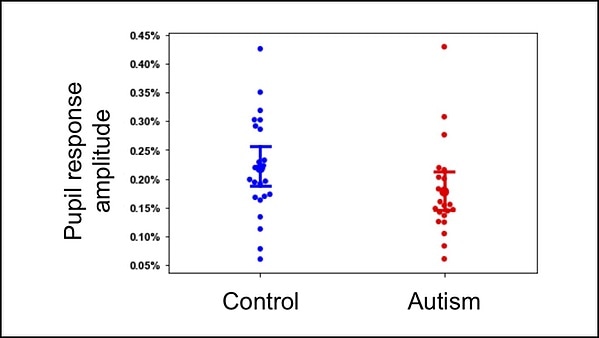New research in JNeurosci explores how a particular region of the brainstem might explain differences in attention in people with autism.

In day-to-day life, we are confronted with an abundance of information, and have to be able to selectively attend to the most relevant aspects of our environment. A region of the brainstem called the locus coeruleus is involved in controlling attention. Because people with autism spectrum disorder show differences in how they regulate their attention, Granovetter et al. explored how the locus coeruleus behaves in individuals with autism. Researchers had participants perform an attention-demanding task and monitored their pupil dilation, which provides information about locus coeruleus activity.
Adult participants watched letters flash on a screen and pushed a button if the same letter appeared twice in a row. They then repeated this task with a distraction — auditory tones played at random times. All participants performed equally well on the task, but participants with autism had atypically smaller pupil dilations compared to controls during the more distracting condition, suggesting a dysregulation in locus coeruleus activity. This dysregulation might explain exaggerated responses to environmental stimuli as well as fixated behaviors and interests that characterize autism spectrum disorder.
Source:
Journal reference:
Granovetter, M.C., et al. (2020) Uncharacteristic task-evoked papillary responses implicate atypical locus coeruleus activity in autism. JNeurosci. doi.org/10.1523/JNEUROSCI.2680-19.2020.